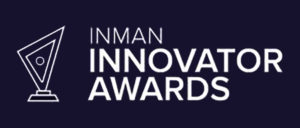If you’re like me, you don’t like to deal with money, and talking about personal finances with a total stranger is the last thing I want to do. And does it get any more personal than when you are buying a home? The good news is that getting your self prepped for getting a mortgage is not that bad. Mortgage financing for a home purchase really does not have to be an uncomfortable experience. The best thing you can do is be prepared and upfront, and you will be amazed how messed up you really aren’t.
What Is the Basic Information A Lender Needs for Mortgage Financing?
First off go ahead and read through some of the following blogs to get yourself orientated to what the mortgage financing and lending process looks like when buying a home in Seattle.
Getting Approved For a Mortgage
Difference Between Pre-Approved Versus Pre-Qualified For a Home Loan
Income – You Need a Job to Get a Mortgage (at least a source of Income)
The obvious and most basic thing you need to finance a home purchase is a source of income. For the 99%, that comes in the form of having a J-O-B. You will need to show two years of continuous employment. You don’t have to be at the same job, but you should be in the same field of work.
Once you have met those criteria, you will need to prove you have said job. If you are a regular employee it is as simple as providing two months worth of your most recent pay stubs. Some lenders may also require you to provide two years worth of tax returns.
For those who are self-employed like me, you will need two years worth of tax returns and provide a profit-and-loss statement. So far easy breezy, right?
Downpayment – You Need Skin in the Game to Get a Mortgage
For nearly everyone, a home purchase requires credit, and it always requires cash. Downpayment amounts can vary, but at a minimum you should have 5% to put down plus another 2-3% for closing costs. The bigger the downpayment, the lower your monthly payment relative to the price of the property. SAVE, SAVE, SAVE. Ideally having 20% down is the best route. It eliminates mortgage insurance premiums and is a safety net in case you have to sell your home unexpectedly. Life happens!
Your Down Payment Can Be a Gift From a Friend or a Family Member
Sometimes we need a little help to get us over the finish line for a home purchase. There is no shame in that, but there are some important guidelines you need to follow. Each financial institution has company-specific rules, so check with them when you are being approved.
The gift funds need to be seasoned.
By seasoned I mean they need to have been in your account for more than sixty days. The exception to the seasoning rule is if the funds are coming from a family member. A family member means mother, father, grandparent, brother, sister, aunt, uncle, child, or grandchild. The key to these gift funds is that they are truly a gift. That means you don’t have to pay the money back. The lender will require the gift-giver to write a letter attesting to that.
If you receive gift money from a family member and you do have to pay it back, that’s okay too. The lender will just figure in the amount you pay back each month and calculate it to your debt-to-income ratio. It will reduce your buying power some, but at least you have the initial capital to buy the property.
Gift funds for a home purchase must be traceable.
No matter where the money comes from, it has to be traced by your lender. If someone is gifting or loaning you funds, they will need to provide documentation of the account the money is coming from and show proof of the transfer. You will need to provide proof the money was transferred into your account.
Credit – You Need to Have Decent Credit to Get a Mortgage
You need to have some sort of credit history. The higher your credit score, the better the rate you are going to receive. You need a 680 or higher credit score to buy a home. The bank is looking to see that you pay your bills on time.
Do yourself a favor and keep things out of collections. Don’t carry more than 20% of your available credit every month and pay your bills on time. Once a year, you can check your credit report for free, or you can subscribe to a credit monitoring company. Knowledge is power and you can’t work on the issue if you are not taking control.
Bank Accounts – The Money For Your Downpayment Cannot Be Under Your Mattress
We’re back to basics with this one. Before providing financing, lenders want to see that you manage your money and you have enough to close the transaction. They can’t verify this if you keep your money under your mattress, so you need to have a healthy bank account.
For a home purchase, have two months of bank statements ready to send to the lender. All the documents should include your name and the account numbers. If you have more than one bank account, then good for you. Send them that information as well.
Assets – You Need to Show You Can Support the Mortgage In Case Something Happens to Your Job
The more assets you have, the more money you’re going to qualify for. Gather up all your information for your savings accounts, investments, retirement funds, 401k, IRA’S. Basically, any asset you’ve got. The more you have, the better the lender is going to feel about giving you a loan.
If you don’t have many (or any) of those things, don’t let that stop you. As long as you have employment, good credit history, downpayment and closing funds, you can still be pre-approved.
See? It is not as convoluted as you thought to get your mortgage financing squared away. It just takes an hour or two of preparing documents and keeping up your credit. When you have done everything on this list, take the next step and contact a lender that your agent has recommended.






























